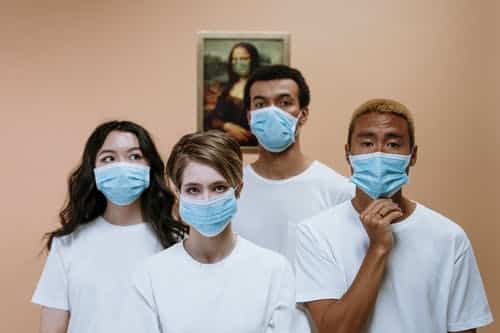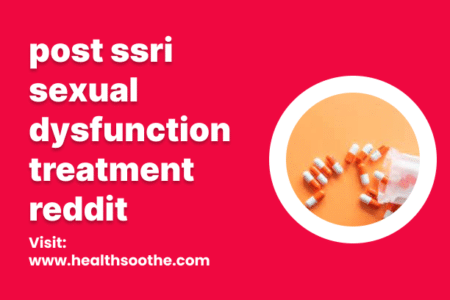Public health is the study and science of prolonging life, preventing disease, and promoting overall improved health. Healthcare individuals do this through organized community efforts to control infectious diseases, educate people on good hygiene, and conduct early diagnoses and preventative treatments of non-communicable diseases. Overall, public health ensures that the people present in the world remain safe, secure, and as healthy as they can be. They can either be people from small communities or an entire region of the world.
Unlike other medical professionals who practice inside clinical settings, such as a hospital or doctor’s office, public health does not deal with a one-on-one treatment method. Those who hold a degree in the public health sector can practice their trade inside nonprofit organizations, national or local government hospitals, insurance companies, or colleges/universities. Some typical public healthcare jobs include community healthcare worker, epidemiologist, environmental healthcare specialist, public health analyst, occupational healthcare specialist, and many more.
No matter what institute you pursue your public healthcare degree from, public health study gives the students a strong foundation. The curriculum also includes health informatics, disease prevention, ethical practices, and much more. Now you know what public healthcare is all about. Let us go ahead and look at one of the most popular job titles that public healthcare professionals go for after getting a degree in public healthcare. It is the title of a public health nurse practitioner.
Who Is a Public Health Nurse Practitioner?
A public health nurse practitioner has to ensure that healthy remain healthy and the sick recover quickly. According to the APHA(American Public Health Association), a public health nurse practitioner protects and practices the entire population using their knowledge in social, nursing, and public health scientists. While practicing as a public health nurse practitioner, you must have medical and nursing skills and a background in environmental sciences, sociology, public policy, and other disciplines.
Public health nurse practitioners can apply for a job in several different healthcare settings. And, their responsibilities and duties change according to where they practice. At the same time, a registered nurse may work in a clinic or a hospital. Public health nurse practitioners can find jobs in various locations such as community centers, public hospitals, or government agencies.
Maybe you are an individual who wants to dive into the world of public health nursing. If so, let’s look at how you can become a public health nurse practitioner and help out the world:
Step 1- Earn a Bachelor’s Degree in Nursing
A public healthcare degree such as a master’s in public health will allow you to get your feet wet in the puddle that is public healthcare. To achieve that, you can find many institutes offering this degree on campus, or you can search an online mph. However, you will require a bachelor’s degree in nursing before thinking about working as a public health nurse practitioner. A bachelor’s of nursing degree program typically span over four years. The curriculum includes nursing courses and general/elective education, along with internships and practicums. Students should select a program that helps them achieve their career goals. These nursing classes reflect the specialization they choose.
Step 2- Get Licensed as a Registered Nurse
Students must get themselves registered as a nurse before they can earn their nurse practitioner credentials. A registered nurse license requirements include a nursing degree of any type and passing marks in the NCLEX (National Council for Licensure Examination). Most states will also do a criminal check and ask for an application fee before issuing the registered nurse license.
Step 3- Earn a Specialization While Working as a Registered Nurse
You can earn a specialization in nursing areas, including gerontology, pediatrics, family care, mental health, and emergency. Each of these will require you to have unique skills and knowledge. For example, mental health nursing deals with psychological health basics more than pediatrics, gerontology, and emergency care. Various states require that you earn national credentials first to work as a nurse practitioner. You can attain these national credentials by passing examinations and pursuing fieldwork in your choice of nursing specialization.
Step 4- Acquire a DNP or MSN Degree
To become a public health nurse practitioner, you need to have some nursing master’s degree or doctorate under your belt. Some states only require you to complete a master’s degree. For that, you can search an online msn fnp program. But a doctorate will ensure that you have a better chance of landing a job as a public health nurse practitioner at your local government hospital. These programs often involve clinical work and incorporate various nursing techniques for people who want to pursue a specific nursing career.
For instance, if a student wants to work in the mental health field as s nurse, he/she must pursue a program that aligns with their career goals. It would be even better if these students participated in local training opportunities and school events related to their focus area.
Step 5- Obtain a Nurse Practitioner License
After completing a bachelor’s degree, obtaining a registered nurse license, and acquiring a DNP or MSN, the next step would be to apply for a nurse practitioner license. Expect to receive this licensure from an organization such as the (American Association of Critical-Care Nurses) AACN, (American Association of Nurse Practitioners) AANP, or (American Nurses Credentialing Center) ANCC.
Such an NP license’s requirement includes poof of advanced education, nursing certification to show your experience and credentials, application fee, and a passing score on a standardized examination. Once you earn this license, it will require periodic renewal, which involves attaining CE (Continuing Education) hours.
Step 6- Search for Employment
Now you have all the credentials, licenses, and education to apply for a public health nurse practitioner job. You can apply for such a job title in universities, schools, government agencies, or community based-organizations. Expect to earn a salary between the range of 57,000-134,000 dollars per year. However, that depends on the place you find work.
Conclusion
People don’t always appreciate the efforts of healthcare professionals around the world. However, these individuals, especially public heal nurses, are on the frontline against the battle with diseases and viruses. So, suppose you want to do good for the world and entire humanity. In that case, you should consider becoming a public health nurse practitioner. Not only will such a job title taking your nursing career to the next level, but you will be able to earn a fast buck while you do it. So, give your nursing career a boost by following this guide and becoming a public health nurse practitioner.





